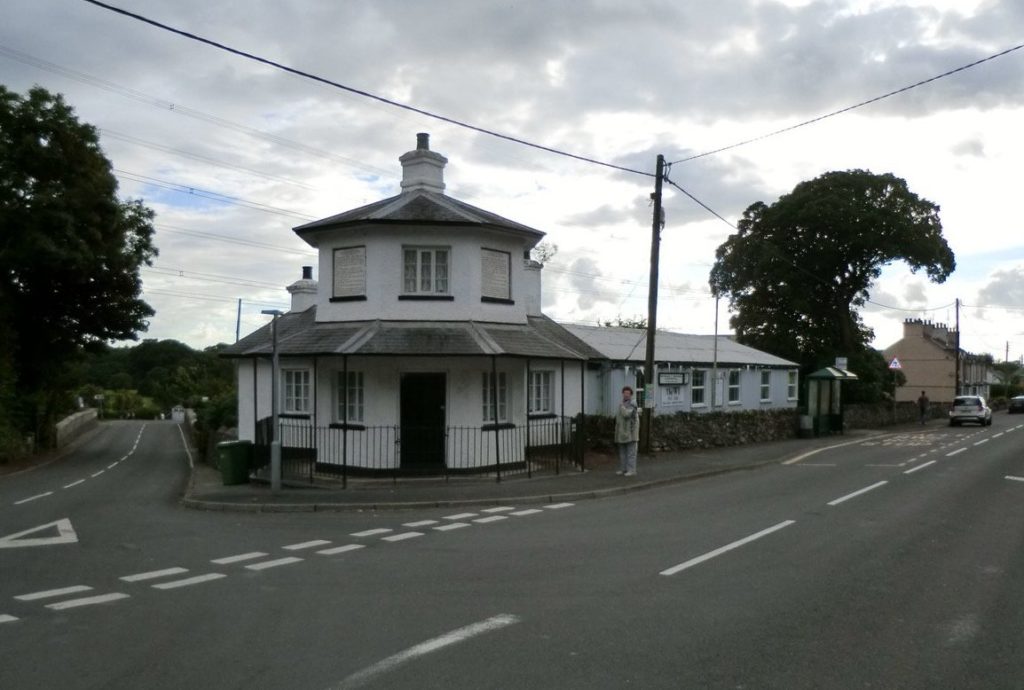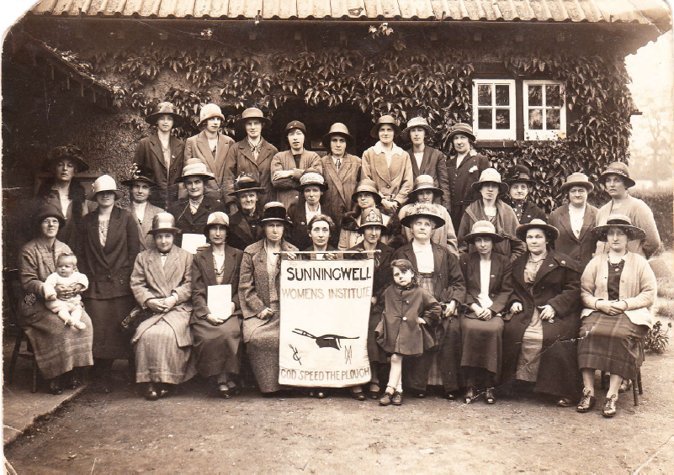Sunningwell Women’s Institute
In 2020, the Sunningwell & Bayworth Women’s Institute celebrated its centenary. In order to commemorate the many women of the parish (and beyond) who had been members during the previous 100 years, it was decided to plant trees. Knowing that Sunningwell was previously known for its elms (now sadly gone: but see here), they decided to plant disease-resistant elms in the hope that they will still be on the Village Green in another 100 years. The elms planted also commemorate the Sunningwell Garden Club, which closed in 2020 after many years. A portion of their remaining funds were donated to the WI to be spent on trees.
The Women’s Institute movement was founded in Canada at the end of the 19th century. It arrived in Britain during World War I, the first branch being located, quaintly enough, far afield on the Isle of Anglesey.
The initial purpose was to help rural women cope with wartime stringencies and produce more food, but its activities were and remained non-military as well as non-political. The idea of a body which not only promoted the interests of countrywomen, but represented all of them equally, regardless of social background, proved immensely popular, many branches being founded around the same time as Sunningwell & Bayworth. Soon they were grouped into county associations – our own being then part of Berkshire ‒ all under the umbrella of a National Federation (NFWI). They thus became, through the next hundred years and beyond, the largest and most important organization campaigning on women’s issues, as well as providing instruction, entertainment and friendship for their members (currently more than 200 000 of them) at a local level.
We know very little about the history of our Sunningwell & Bayworth branch of the WI. It evidently thrived in the inter-war period, as is shown by this oldest picture which we have of its members, displaying their motto ‘God Speed the Plough’.
The one significant feminist who lived in the village, Una Duval, settled here long after her suffragette youth and seems to have taken no interest in the WI. Yet the village lay close to important personalities and developments in the movement, such as Grace Hadow in the city of Oxford, Lady (Elizabeth) Brunner in the county of Oxfordshire, and Denman College at Marcham, which served for decades as the focus for the educational work of the NFWI as a whole. Perhaps some reader of this can help us piece together some of the branch’s past?
You can find out about its current activities at https://sunningwellwi.wordpress.com .
Article by Bob Evans


